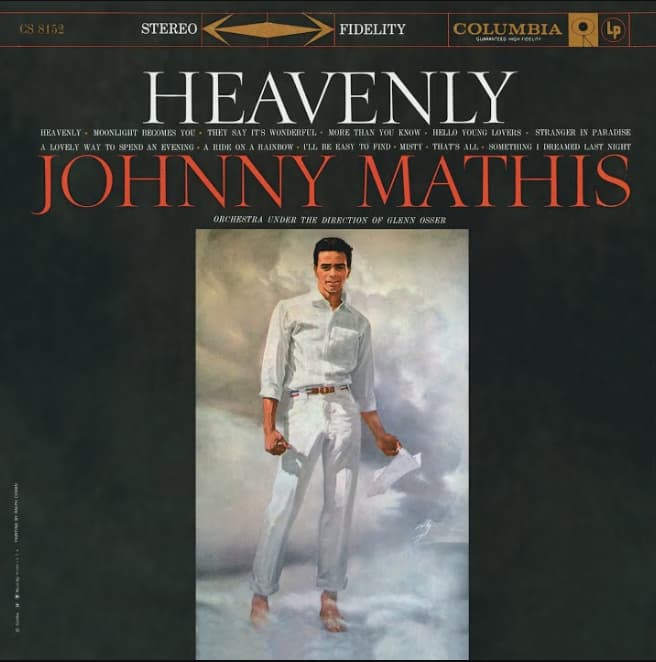
A Journey Through Longing and Illusion — When Love Becomes a Dream Beyond Reach
When Johnny Mathis recorded “Stranger in Paradise” for his 1958 album Heavenly, he transformed a Broadway melody into something that felt celestial. Originally drawn from Alexander Borodin’s “Polovtsian Dances” in the opera Prince Igor, the tune had already been adapted by Robert Wright and George Forrest for the 1953 stage musical Kismet. But under Mathis’s tender phrasing and ethereal vibrato, it transcended its theatrical roots, becoming an ode to unattainable love — a reverie wrapped in strings, velvet, and the ache of distance. Though never released as a single in the United States, the song stood as one of Mathis’s defining performances, a moment where his romantic tenor touched the realm of the eternal.
The beauty of “Stranger in Paradise” lies in its suspended time — a love song that does not belong to the world of certainty, but to the world of dreams. The lyrics, wistful and reverent, tell of a man awed by a love so perfect it feels unreal: “Take my hand, I’m a stranger in paradise, all lost in a wonderland…” Mathis’s delivery glides between devotion and disbelief, as if he fears the vision might vanish at any moment. His phrasing lingers on each vowel, pulling the listener into that shimmering threshold between waking and wonder.
Musically, the orchestration is lush but disciplined — a cascade of strings, harp, and choral echoes that seem to part like clouds. Mathis’s voice floats above it, a tone of silk and sigh, capturing not just affection but awe. It’s the sound of someone encountering beauty so profound that words collapse, and only melody remains. In this sense, the song embodies the postwar romantic idealism that defined the late 1950s: the yearning for purity in a rapidly changing world, the search for a paradise that feels forever out of reach.
Culturally, Mathis’s interpretation stood apart from earlier renditions — where Tony Bennett’s 1953 hit version was stately and grand, Mathis’s was intimate and otherworldly. He turned spectacle into solitude. That shift reflected his broader artistic legacy: transforming the American popular song into a vehicle of deep personal introspection. His voice didn’t just sing about love; it inhabited it, as though each phrase were a confession whispered into eternity.
More than six decades later, “Stranger in Paradise” endures as one of Mathis’s most luminous achievements — a song where paradise is not a place, but a fleeting feeling caught between heartbeats. In that gentle suspension lies its timelessness: the moment when longing itself becomes divine.